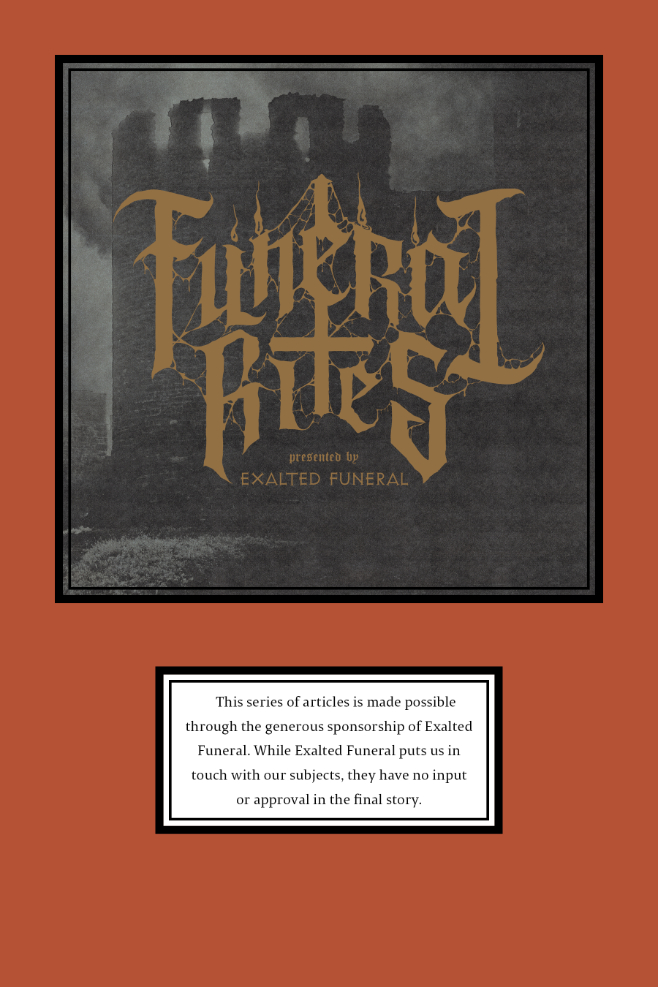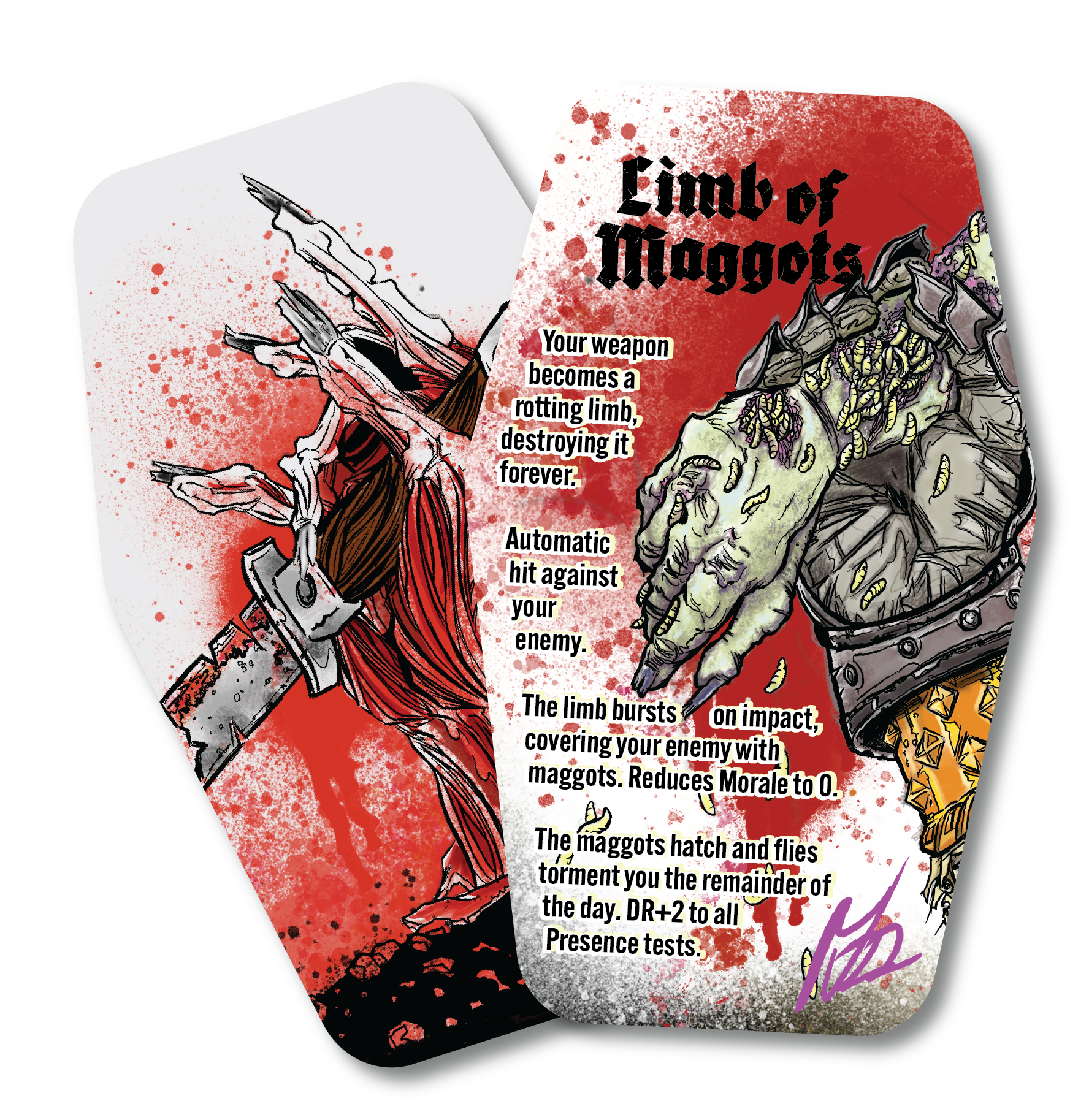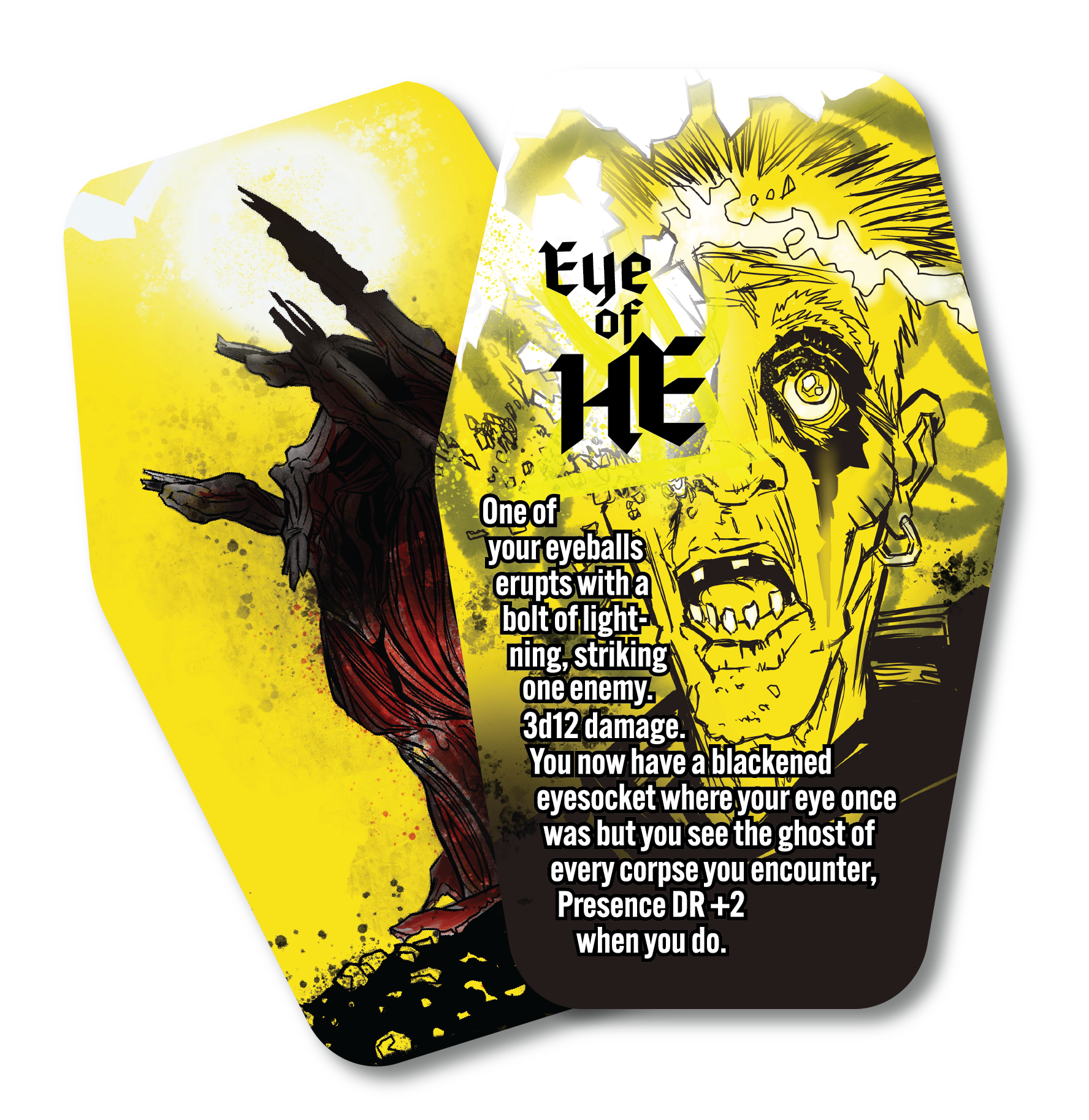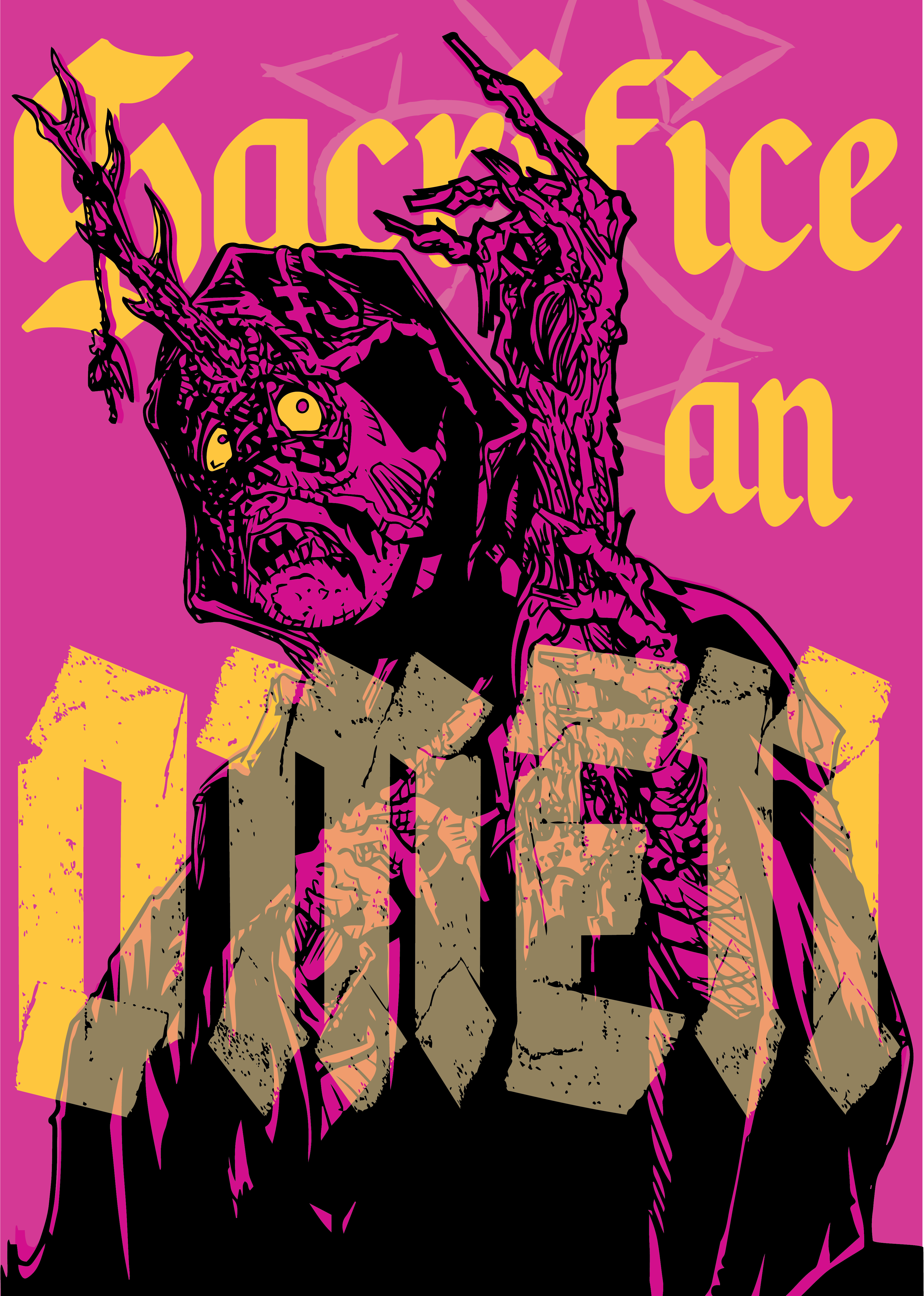
The Neon Nightmare of Portents of the Degloved Hand
This feature is a reprint from Unwinnable Monthly #161. If you like what you see, grab the magazine for less than ten dollars, or subscribe and get all future magazines for half price.
———

In his introduction to Melancology: Black Metal Theory and Ecology, Scott Wilson writes that “black metal is both terrestrial and cosmic – indeed subterranean and infernal – inhabiting a dead forest that is at once both mythic and material.”
MÖRK BORG exists in a similar space, where resources are harshly limited and everything around you, nearly, is undead. The similarity isn’t surprising when you learn the hardcore TTRPG is inspired by extreme music, a fact which appears in the credits to bands such as Godspeed You! Black Emperor and Mammoth Weed Wizard Bastard. Its English writing credits include Patrick Stuart, whose Veins of the Earth has a similar reputation for gutting, exhausting tone. (Levi Rubeck recently wrote about MÖRK BORG’s particular cruelty here.)
In MÖRK BORG, you create a character to rummage through the scraps of a dying world, until you’re killed off by a cataclysmic Misery, a monster, or simply your own mistakes. Fights work by rolling initiative and then rolling again for your attacks and defenses. Rolls in fights or the field are called “tests,” with difficulty depending on whether the action is simple, impossible, or in-between. The game makes use of lots of status effects as well as a system called Morale: most enemies can be battered until they run away. Spells can have unintended effects, making you transmit a magic plague or grow fingers from your mouth. In every avenue, it’s easy, and common, to make very consequential mistakes.

In contrast to the harshness of its play experience, MÖRK BORG has a library of additional resources that make getting started easy. The monster approaches is a monster-generating tool marked with a shaking, bursting egg and gothic text that describes whatever creation you birthed for players to deal with. This black metal playlist gives a soundtrack for your adventures. And SCVMBIRTHER is a character creator that generates classes and attributes fast, although as the manual says of your identity, “Most likely, it makes little difference.”
Up to now the game hasn’t gotten any official supplements, though third-party publications are encouraged and thriving thanks to the MÖRK BORG license. And of these, soon a set of three third-party licensed expansions will be arriving, with the first, Portents of the Degloved Hand, going live on Kickstarter on April 5 with an intended release in the fall.
Portents is a collection of four decks, each with 13 cards. Characters sacrifice a resource from the base game known as Omens in order to have one of a range of effects, all of them bizarre and risky. The deck’s promotional material describes its purpose as adding “additional chaos, misfortune, and even dark humor” to the base game.
Portents’ creator Matt Johnson was introduced to TTRPGs in 1981, when his older brother got a copy of the solo RPG Barbarian Prince. After discovering Dungeons & Dragons with some neighbors, he was hooked. However, the Satanic Panic soon hit in a personal way: living in a conservative evangelical home, Johnson was forbidden from playing D&D. This led to his exploring and playing other TTRPGs, and eventually to his continuing passion for the genre.
In the last few years, that passion was reignited when a friend recommended MÖRK BORG. Like Barbarian Prince forty years earlier, the game immediately appealed to him. One of his favorite things about the game was the Omen system, which functions as a saving throw for players who have gotten into trouble. But as he played, he started thinking about another way the ritualistic aspect of Omens could work: “Rather than just make a table or list additional things you could do with an Omen, I wanted it to be something that requires sacrifice but that also held a heavy element of taking a risk or paying a price. The balance of risk and reward is an overarching theme with this deck and one that I think accurately reflects the environment that is MÖRK BORG.”

Portents’ four decks – Disaster, Disease, Destruction, and Death – each hew to certain themes in line with MÖRK BORG’s oppressive atmosphere. One card, Limb of Maggots, turns your weapon permanently into a rotting limb: hitting an enemy with it reduces their Morale to 0, but “maggots and flies torment you the remainder of the day. DR+2 to all Presence tests.” This combination of a new power and a punishment that fundamentally changes your character adds the potential for many different play experiences, and also expands what players can do with their Omens, which are normally used for dealing maximum damage or retrying a roll. Johnson described a session where a player used a Portent card to turn certain death into a dramatically-paced survival story. “It was something that would never have come into the game otherwise,” Johnson said. “It made the session much more epic than it would have been.”
Each card in the deck has its own illustration, which tend to be more colorful than the base game’s black-and-white (and yellow) horrors. Skeletons peer out from behind masks with pink-tinted muscle in their faces; regular human faces have purples and blues that feel off, suggesting mold, disease or just ill humor. The brightly colored cards lean into a more vibrant but no less unsettling feeling than vanilla MÖRK BORG gives you, with gels with the expansion’s intention: to explode basic gameplay with over-the-top, grotesque style.
The physical nature of the decks, as well as their varied contents, appealed to Johnson’s style of workflow. “During any given work session, I might draw the art for a card, run a packaging test through my Cricut and jot down some ideas, only to end by messing around with some clay. It’s a balancing act of focusing on the different stages while still being open to explore.” In addition to the four decks, the set includes a four-sided die and an .STL file of a 3D hand sculpture designed by Steven James Taylor.
While Johnson produced much of the material for Portents alone, he never lost sight of the OSR community that was behind him. Now, he hopes this project will be the first of many. “It feels really good – almost like a homecoming – to finally contribute back to a community that has given me so much over the decades.”
* * *
Portents of the Degloved Hand is available at Exalted Funeral now. For further updates, you can follow along on the Raven Portents site and Instagram.

———
Emily Price is a freelance writer and PhD candidate in literature based in Brooklyn, NY.




